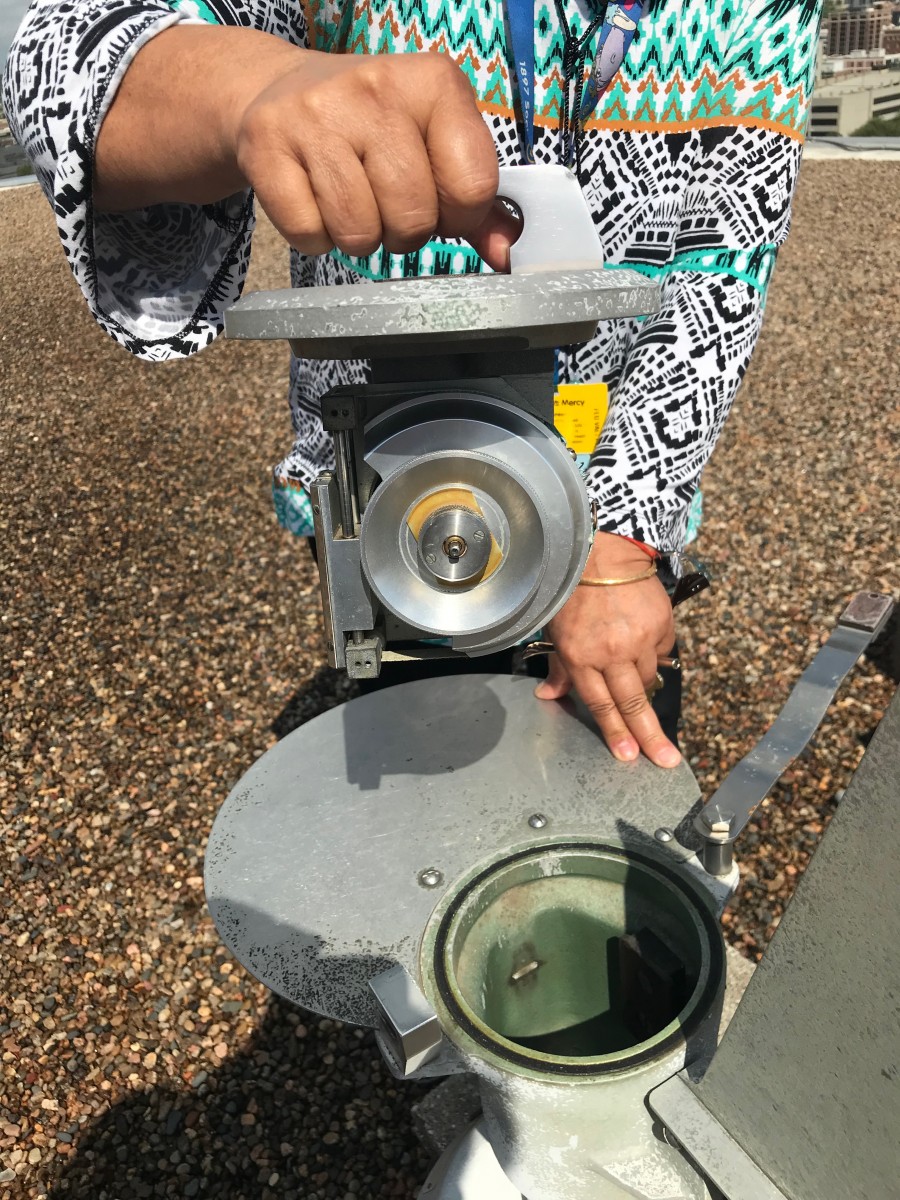Ragweed Allergy Season: New App Designed to Help Allergy Sufferers

Fall allergy season is here and there’s a new app that shows when the pollen count is high to help people treat symptoms more effectively.
It’s called the AccuPollen™ Allergy Tracker and it correlate allergies with the local pollen count, which provides specific breakdown of types of trees, grasses and weeds.
Children’s Mercy is certified by the National Allergy Bureau (NAB) and has been collecting pollen count data daily for more than 20 years, which is provided to the community.
“Since we already provide the data to the NAB, we were asked if we’d also provide the data for this app, which was developed by an allergist-immunologist in the NAB network,” said Kevin Kennedy, Director of the Environmental Health Program at Children’s Mercy. “We’re one of a whole network of pollen counting stations around the world, but we’re the only reporting station in the Kansas City area.”
Allergy Symptoms
One in five people have allergies, which can cause sneezing, runny nose, stuffy nose, itchy nose and watery itchy eyes.
“These symptoms occur when someone is allergic to a specific plant pollen that has been released in the air,” said Dr. Jay Portnoy, Pediatric Allergist at Children’s Mercy. “Right now, we’re headed into weed pollen season, which is mostly ragweed in the Midwest.”
Minati Dhar, a researcher at Children’s Mercy, collects pollen counts from a machine located on the roof of the hospital daily. She’s started seeing ragweed in the sample a couple of weeks ago.
“Ragweed allergy season usually starts in the middle of August and lasts until October,” said Dhar. “Tree pollen season starts in the spring around February or March and lasts until around May, while grass pollen starts in May and weed pollen starts in late May or June.”
While one season isn’t worse than the other (it really depends on what type of pollen a person is allergic to), this time of year seems to be particularly bad, especially for youngsters.
“Ragweed allergy season hits right when kids are headed back to school. They’re getting colds, nasal allergies or a combo of the two, which can make kids really sick and cause asthma to flare up along with nasal allergies,” said Dr. Portnoy.
Why Pollen Count Matters
Kevin Kennedy and Minati Dhar Dr. Jay Portnoy
Unfortunately, the pollen season isn’t easy to predict.
“The length and severity of the pollen season depends, in part, on the weather. If it's really hot and dry, pollination stops. If it rains, the pollen count will go down. If it thunderstorms and rains a lot, it can stir up the tree pollen in the ground. Even if the pollen is dead, it still has allergens and can cause allergy symptoms,” Dhar added.
Since pollen count can frequently change, the AccuPollen app provides real pollen count information on a daily basis, opposed to other pollen reports that are based on computer models.
“The strength of the app is its accuracy,” said Kennedy. “The idea behind tracking daily pollen count lets allergy sufferers know if a particular pollen is low or high for that day.”
Dr. Portnoy added. “The benefit is that someone with allergies doesn’t necessarily need to start taking medication until the pollen count goes up. They can then take it through the season until the count drops down and discontinue using it. There's pretty good evidence that shows people can control their symptoms by doing this and they end up taking less medicine, because they're not taking it when there isn't any pollen in the air.”
Finding Relief
When possible, allergy sufferers should limit exposure by not going outside when the ragweed pollen count tends to peak between noon and 2 p.m. The best time for outdoor activities is early in the morning or late in the evening. As for medications, over-the-counter antihistamines can provide relief.
“Zyrtec, Claritin, Allegra and Flonase all work well,” said Dr. Portnoy. “I recommend avoiding Benadryl because it can make children drowsy. Also, generic brands are just as effective as the brand names.”
If an antihistamine, nasal spray and eye drops don’t provide adequate relief or if symptoms last all year long then it might be a good time to see an allergist.
“Allergy specialists can confirm if you have allergies and what individual plants you’re allergic to,” said Dr. Portnoy.
Click here for today’s pollen, mold and ragweed counts.
Learn more about the Allergy, Asthma and Immunology Department at Children’s Mercy.
Read Dr. Portnoy’s article on The Clinical Utility of Pollen Counts published in Clinical Review in Allergy & Immunology.
(below) Minati Dhar collects pollen counts from a machine located on the roof of the hospital daily.


